#autobiography of eve
Explore tagged Tumblr posts
Text

Ansel Elkins
36 notes
·
View notes
Text
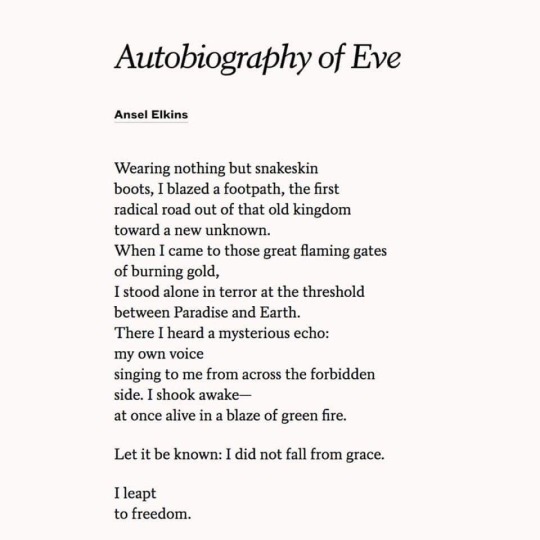
I have a lot of feelings about Crowley and Eve ok
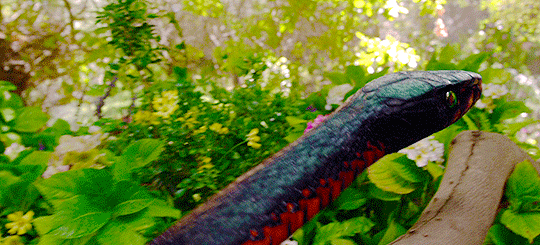
56 notes
·
View notes
Text
She leapt to freedom!
Autobiography of Eve
Ansel Elkins
Wearing nothing but snakeskin boots, I blazed a footpath, the first radical road out of that old kingdom toward a new unknown. When I came to those great flaming gates of burning gold, I stood alone in terror at the threshold between Paradise and Earth. There I heard a mysterious echo: my own voice singing to me from across the forbidden side. I shook awake— at once alive in a blaze of green fire.
Let it be known: I did not fall from grace.
I leapt to freedom.
3 notes
·
View notes
Text

𝙼𝚊𝚕𝚌𝚘𝚕𝚖 𝚇 - 𝙲𝚑𝚒𝚌𝚊𝚐𝚘, 𝟷𝟿𝟼𝟷 - 𝚋𝚢 𝙴𝚟𝚎 𝙰𝚛𝚗𝚘𝚕𝚍.
#malcolm x#1960s#fashion#60s#style#activism#black excellence#20th century#people#eve arnold#islam#muslim#revolution#blm#human rights#politics#history#photography#black tumblr#black history#📚#books#the autobiography of malcolm x
248 notes
·
View notes
Text
Memoir Rec: Who's That Girl? by Eve
with Kathy Iandoli

If you grew up in the era of early 2000's hip hop, this book may be for you. Rapper and actress Eve has written an autobiography named after her hit song.
Eve is notoriously known for her paw print tattoos, blonde and red hair, and being an amazing lyricist. While much of her story was already public, she goes into detail about events such as battling alcohol and drug addiction, crashing her car and getting a DUI, and randomly finding herself at the Church of Scientology. She even details her more personal battles such as trying to conceive and managing wife-hood and motherhood through stardom.
While Eve has been out of the public eye, she gives insight on the events that led up to that decision.
While autobiographies can sometimes be a bit dull, this one was packed with interesting tidbits not only about Eve herself but other celebrities. So if you, like the title, are asking "Who's that girl?" you will definitely know more about Eve after finishing the book!
Check out Who's That Girl? (also on Hoopla!)
See more of Ashley's recs
#who's that girl#eve#kathy iandoli#memoir#autobiography#nonfiction#book recommendations#book recs#booklr#rapper#hip hop#rap#eve jihan cooper#ashleyrecs#LCPL recs
0 notes
Text
In 1847 the stereotypes for male and female writers were very rigid. Critics expected from a male writer strength, passion, and intellect, and from a woman writer they expected tact, refinement, and piety. They depended on these stereotypes so much, in fact, that they really didn't know how to proceed, what to say, or what to look for in a book if they were unsure of the author's sex.
So Jane Eyre created a tremendous sensation, and it was a problem for the Brontës. The name Currer Bell could be that of either a man or a woman and the narrator of Jane Eyre is Jane herself. The book is told as an autobiography. These things suggested that the author might have been a woman. On the other hand, the novel was considered to be excellent, strong, intelligent and, most of all, passionate. And therefore, the critics reasoned, it could not be written by a woman, and if it turned out that it was written by a woman, she had to be unnatural and perverted.
The reason for this is that the Victorians believed that decent women had no sexual feelings whatsoever—that they had sexual anesthesia. Therefore, when Jane says about Rochester that his touch "made her veins run fire, and her heart beat faster than she could count its throbs," the critics assumed this was a man writing about his sexual fantasies. If a woman was the author, then presumably she was writing from her own experience, and that was disgusting. In this case we can clearly see how women were not permitted the authority of their own experience if it happened to contradict the cultural stereotype.
But even more shocking than this to the Victorians was Jane's reply to Rochester, a very famous passage in the novel. He has told her he is going to marry another woman, an heiress, but that she can stay on as a servant. Jane answers him thus:
"I tell you I must go," I retorted, roused to something like passion. "Do you think I can stay to become nothing to you? Do you think I am an automaton, a machine without feeling and can bear to have my morsel of bread snatched from my lips and my drop of living water dashed from my cup? Do you think because I am poor, obscure, plain and little, I'm soulless and heartless? You think wrong. I have as much soul as you and full as much heart. And if God had gifted me with some beauty and much wealth, I should've made it as hard for you to leave me as it is now for me to leave you. I am not talking to you now through the medium of custom, conventionality, nor even of mortal flesh. It is my spirit that addresses your spirit, just as if both had passed through the grave and we stood at God's feet equal—as we are."
This splendid assertion violated not only the standards of sexual submission, which were believed to be women's duty and their punishment for Eve's crime, but it also went against standards of class submission, and obviously against religion. And this sort of rebellion was not feminine at all.
The reviews of Jane Eyre in 1847 and 1848 show how confused the critics were. Some of them said Currer Bell was a man. Some of them, including Thackeray, said a woman. One man, an American critic named Edgar Percy Whipple, said the Bells were a team, that Currer Bell was a woman who did the dainty parts of the book and brother Acton the rough parts. All kinds of circumstantial evidence were adduced to solve this problem, such as the details of housekeeping. Harriet Martineau said the book had to be the work of a woman or an upholsterer. And Lady Eastlake, who was a reviewer for one of the most prestigious journals, said it couldn't be a woman because no woman would dress her heroines in such outlandish clothes.
Eventually Charlotte Brontë revealed her identity, and then these attacks which had been general became personal. People introduced her as the author of a naughty book; they gossiped that she was Thackeray's mistress. They speculated on the causes of what they called "her alien and sour perspective on women." She felt during her entire short life that she was judged always on the basis of what was becoming in femininity and not as an artist.
-Elaine Showalter, ‘Women Writers and the Female Experience’ in Radical Feminism, Koedt et al (eds.)
#elaine showalter#charlotte bronte#jane eyre#sex roles#female writers#women’s history#women in literature#victorian
1K notes
·
View notes
Text
1. “Angela Davis: An Autobiography” by Angela Davis 2. “Elite Capture: How the Powerful Took Over Identity Politics (And Everything Else)” by Olúfẹ́mi O. Táíwò 3. “Digging our own Graves: Coal Miners and the Struggle over Black Lung Disease” by Barbara Ellen Smith 4. “1919” by Eve L. Ewing 5. “Assata Taught Me: State Violence, Racial Capitalism, and the Movement for Black Lives” by Donna Murch 6. “Finding my Voice” by Emerald Garner 7. “From #BlackLivesMatter to Black Liberation” by Keeanga-Yamahtta Taylor 8. “Let This Radicalize You: Organizing and the Revolution of Reciprocal Care” by Kelly E Hayes and Mariame Kaba 9. “An Enemy Such as This: Larry Casuse and the Fight for Native Liberation in One Family on Two Continents Over Three Centuries” by David Correia 10. “101 Changemakers: Rebels and Radicals who Changed US History” by by Michele Bollinger and Dao X Tran 11. “Class War, USA: Dispatches from Workers’ Struggles in American History” by Brandon Weber 12. “#SayHerNameBlack Women’s Stories ofPolice Violence and Public Silence” by Kimberlé Crenshaw and African American Policy Forum 13. “An Asian American A to Z: A Children’s Guide to Our History” by Cathy Linh Che and Kyle Lucia Wu 14. “Repair: Redeeming the Promise of Abolition” by Katherine Franke 15. “Haunted by Slavery: A Memoir of a Southern White Woman in the Freedom Struggle” by Gwendolyn Midlo Hall
x
359 notes
·
View notes
Text

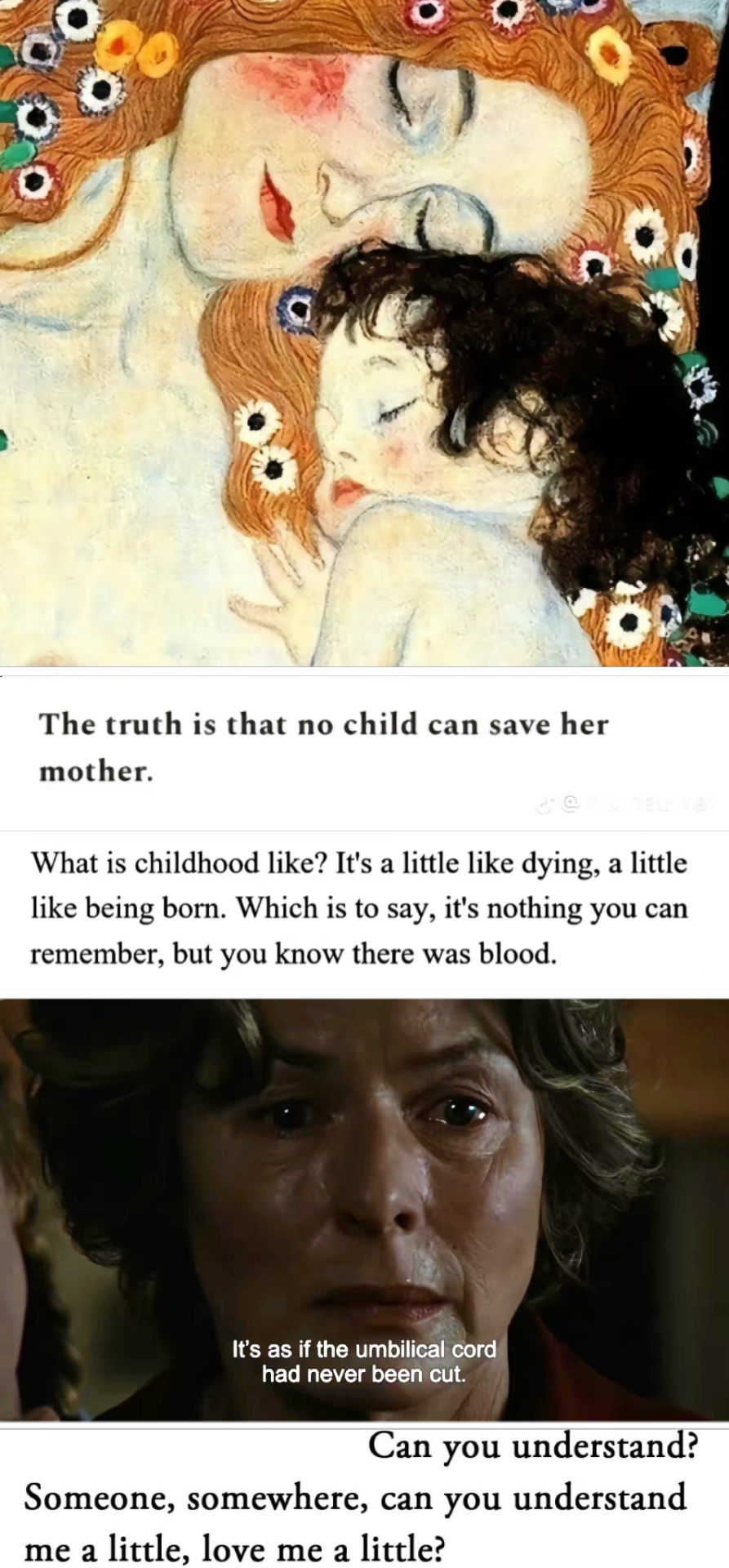


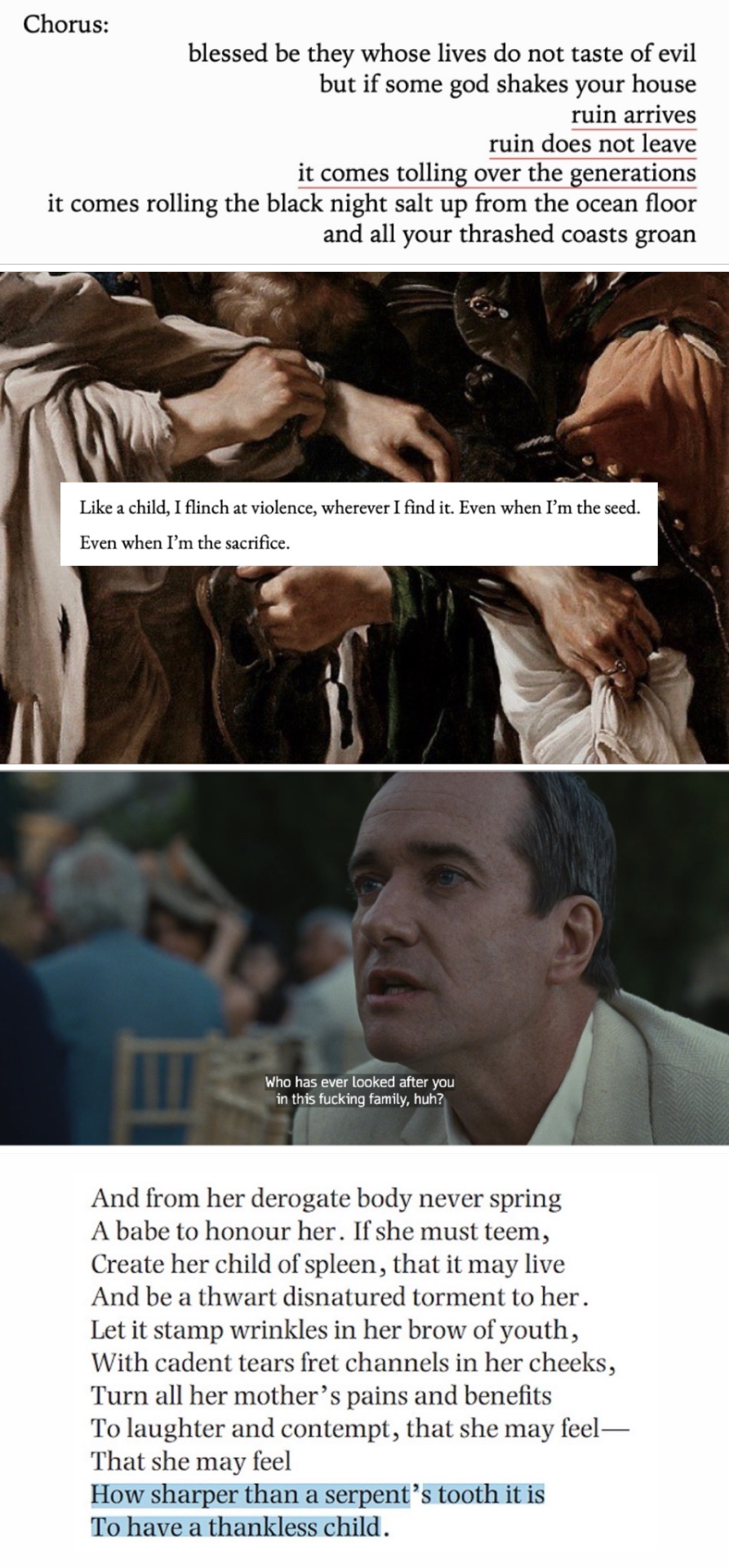
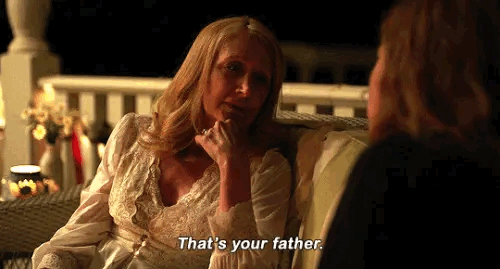
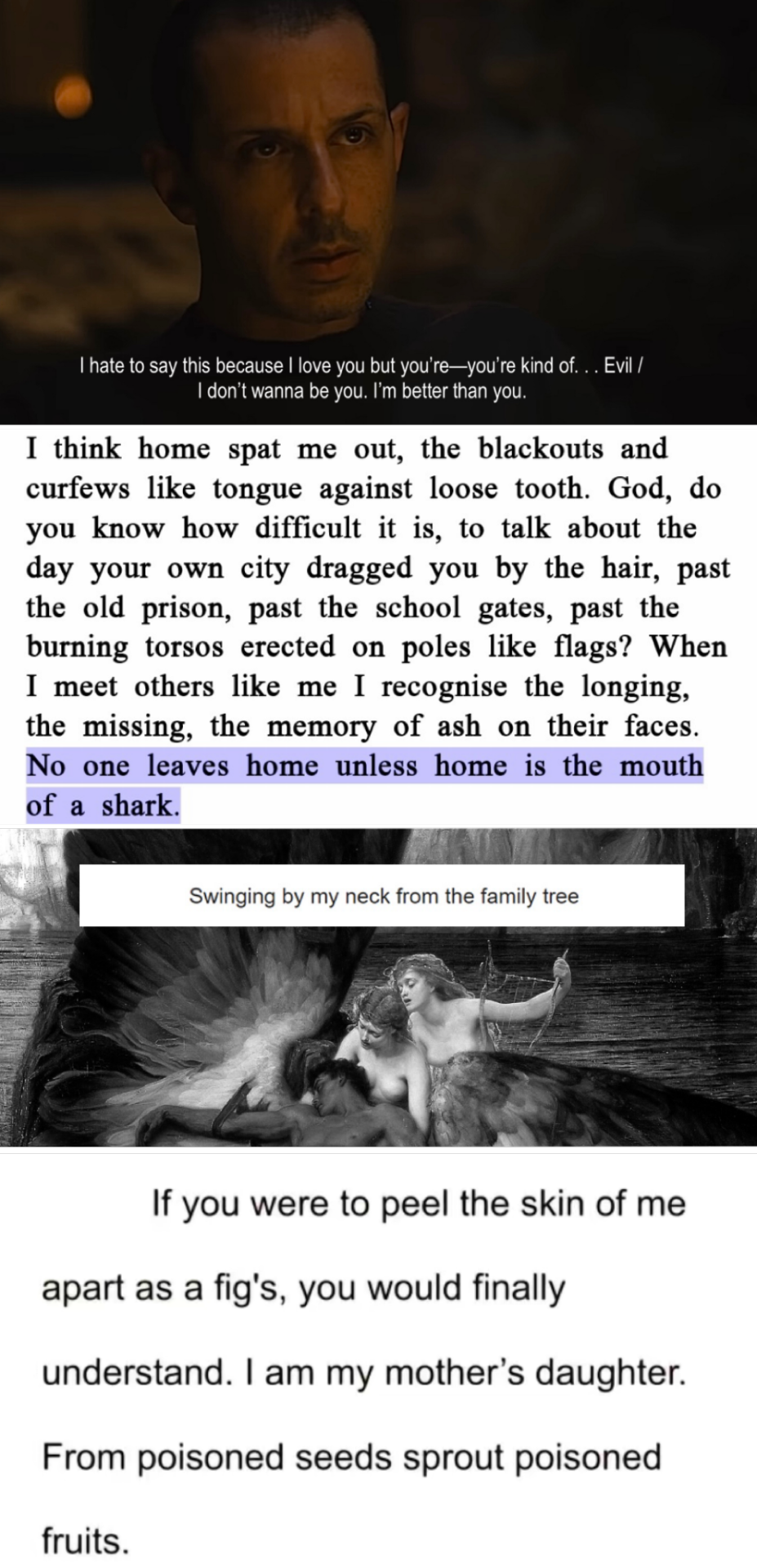
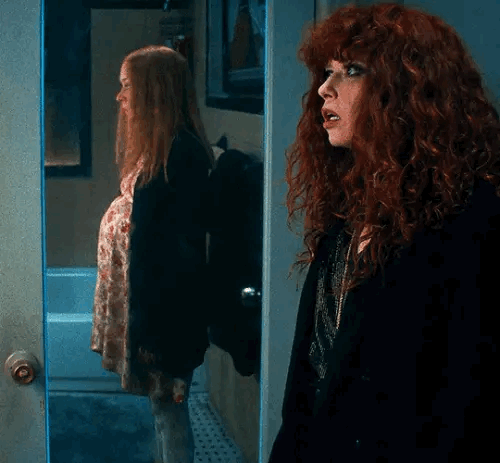
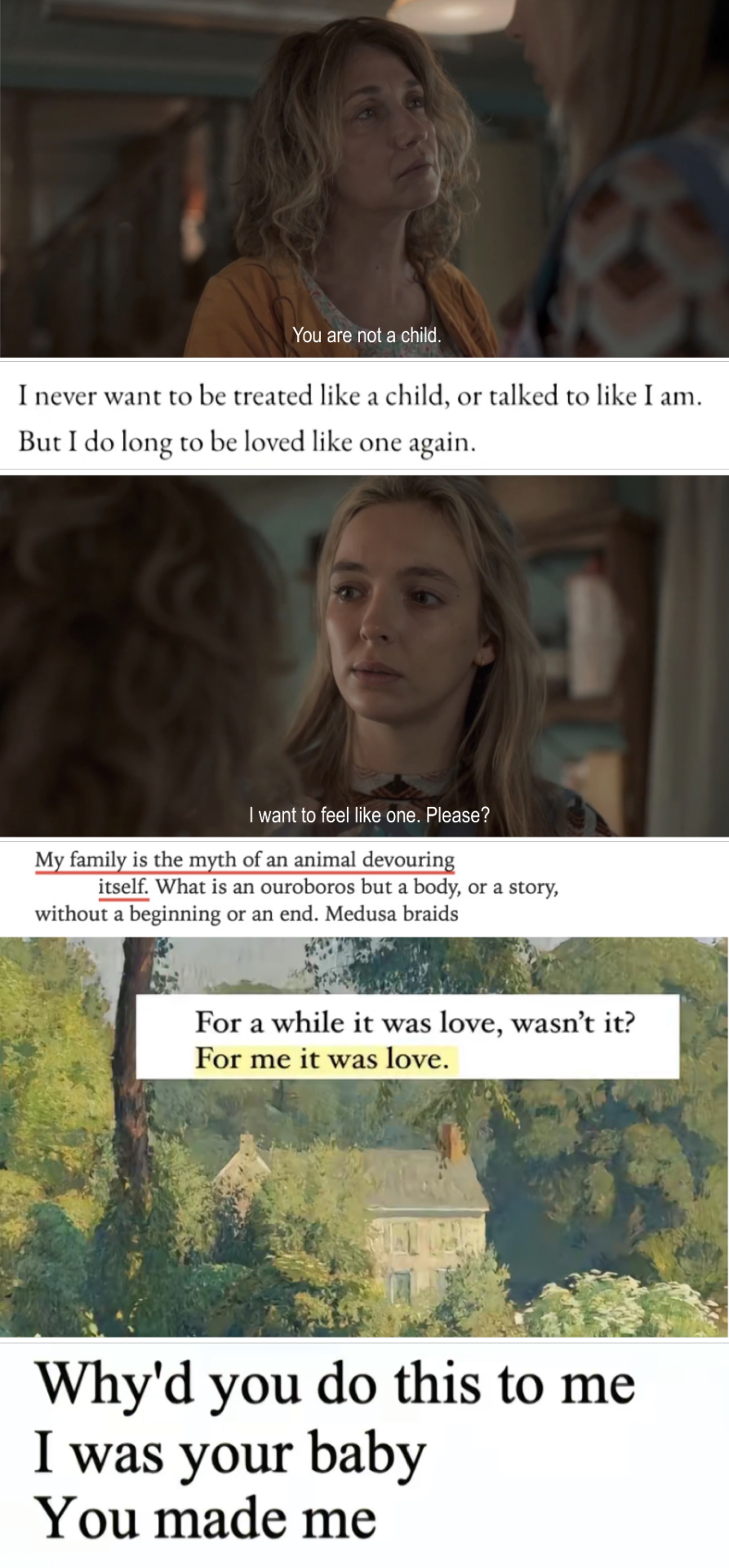
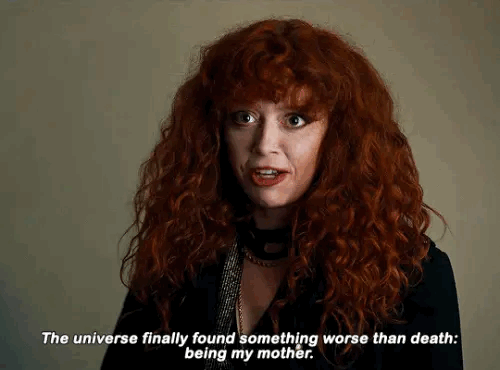
MAYBE THE POISON DRIPS THROUGH.
Kendall Roy (Succession. CR: @humanveil) / Mother and Child — Gustav Klimt / Autumn Sonata — Ingmar Bergman / The Journals of Sylvia Plath — Sylvia Plath / Fleabag — Phoebe Waller-Bridge (CR: limitedseries) / 1804/ Autobiography — Dan Pagis / Villanelle (Killing Eve) / Lindsay C. Gibson / Olivia Benson (Law & Order: SVU) / Sharp Objects — Gillian Flynn & Jean-Marc Vallée / Teaching My Mother How To Give Birth — Warsan Shire / Family Tree — Ethel Cain / The Lament for Icarus — Herbert Draper / Russian Doll — (CR: CTO, I found it on pinterest) / Stavros Kazantzidis / Susan Smith — Wych Elm / Antigonick — Anne Carson / Slaughterhouse — Yves Olade / The Return of the Prodigal Son — Guercino, 1619 / King Lear — Shakespeare
#periphery#web weaving#mommy issues#daddy issues#family#generational trauma#mother#russian doll#sharp objects#compilation#mommy issues web weaving#toxic family#poetry#on family#art#succession#kendall roy#killing eve#writing#poem#phoebe bridgers#dark academia#love#heartbreak#web weave#on heartbreak#on toxic families#words#text#quote
264 notes
·
View notes
Note
what kind of books/movies do you see everyone reading/watching???
I love yapping about books and films, anon, how did you know?
Okay AHHHHHHH so many thoughts. I'm going to include modern films though
Remus - I think he loves Lord of the Rings (both the films and the books) and some Greek Mythology classics like The Odyssey and The Iliad
Sirius - Boy doesn't read. What's a book? Films though, I think he likes a good action film. Maybe something like Bullet Train with some comedy in there, or like John Wicke and he spends who whole time like "Keanu looks so good in a suit, don't you think?" and stares until you agree.
James - James says that he likes films like Blade Runner, but when he's home alone he's watching Krrish. I could see him being into Star War too. In terms of books, I think he prefers non-fiction or maybe like a sci-fi book, idk too much about those.
Peter - As a kid, he was reading Goosebumps like there was no tomorrow and loved the Swiss Family Robinson. I think he'd also like Star Wars with James and maybe Indiana Jones. I could see him enjoying Stand By Me and The Goonies as well, he's be really into classic 80s movies.
Lily - Anne of Green Gables all the way. I think she got called Pippi Longstocking when she was younger and has refused to have anything to do with it since. Lily would love the tv show Anne with an E. I think she likes watching the LotR films with Remus because she loves the women but would complain that they don't have enough to do. She's also a lover of Wuthering Heights, I feel. And The Princess Bride.
Mary - OUR ROMCOM QUEEEENNN!!! Her favourites are Clueless, The Notebook, The Proposal and whenever she watches Love Actually she gets irrationally angry at Harry before he's even done anything to hurt Karen, it's just a vibe. She reads those smutty romance books with the cartoon covers, but also loves Janes Austen like Emma and Pride and Prejudice. She's also into Eve Babitz and Joan Didion I feel.
Marlene - She reads a lot of biographies and autobiographies. One time someone caught them reading Bloody Chamber by Angela Carter and they hated all men for two weeks, even James who she was normally friends with. I think films...I want to say Bend it Like Beckham but that feels so obvious. She can also recite a lot of The Devil Wears Prada but that's their girlfriend's fault. Marlene could probably be a horror film buff? That seems kinda fun.
Dorcas - Like I just mentioned, The Devil Wears Prada. I think she also likes period romances like the 2005 Pride and Prejudice and Atonement. She'll also watched Bend it Like Beckham...and there is absolutely no link between those three films that would explain why she likes them. In terms of books, I think she would enjoy some Stephen King, her and Marlene have a joint love for The Shining and Carrie.
Pandora - I've been thinking about this and I think Pandora would be a big fan of Guillermo Del Toro's film Pan's Labyrinth. Maybe also The Dark Crystal? In terms of books, I think she let Marlene borrow her copy The Bloody Chamber but she also likes Maya Angelou.
Regulus - Motherfucker is so pretentious. He is reading Russian novels and glares at anyone who calls him out for it. I think if Regulus watching films, he's watching very deep and thoughtful films, ones that either aren't particularly popular but are good for discussion. I couldn't name one though so 🙃
Barty - No.
Evan - I think he could be into horror novels or like psychological thrillers. The first one that came to mind was I'm Thinking of Ending Things by Iain Reid, but I think he could fuck with The Picture of Dorian Gray which doesn't fit the same vibe but it makes since to me I think. Also medical journals and books about the human body. I've said previously that I think Evan would really like films like Martyrs and The Idiots and I stand by that. Maybe also Un Chien Andalou.
Xenophilius - I mentioned earlier in this post that I think Xeno fucks with folk stories so that's what he'd be reading. Maybe like a classic dystopian such as 1984? I am struggling with films though, I genuinely have no idea.
#marauders#hp marauders#marauders era#dead gay wizards from the 70s#remus lupin#sirius black#james potter#peter pettigrew#lily evans#mary macdonald#marlene mckinnon#dorcas meadowes#pandora rosier#pandora lovegood#regulus black#barty crouch jr#evan rosier#xenophilius lovegood
22 notes
·
View notes
Text
Wanna learn about women history and WWII? Here is a non-exhaustive list to get you started
German women and the Nazi regime
Mothers in the Fatherland: Women, the Family and Nazi Politics, Claudia Koonz
Female SS Guards and Workaday Violence: The Majdanek Concentration Camp, 1942-1944, Elissa Mailänder
Zwangssterilisation im Nationalsozialismus: Studien zur Rassenpolitik und Frauenpolitik, Gisela Bock
Hitler's Furies: German Women in the Nazi Killing Fields, Wendy Lower
"Backlash against Prostitutes' Rights: Origins and Dynamics of Nazi Prostitution Policies," in Journal of the History of Sexuality Julia Roos
"German Women and the Holocaust in the Nazi East," Wendy Lower, in Women and Genocide, Elissa Bemporad & Joyce W. Warren
Frausein im Dritten Reich, Rita Thalmann
Women as victims or perpetrators of the Holocaust (general)
"Women and the Holocaust: A Reconsideration of Research," in Signs, Joan Ringelheim
Women in the Holocaust, Dalia Ofer & Lenore J. Weitzman
Das KZ-Bordell: Sexuelle Zwangsarbeit in nationalsozialistischen Konzentrationslagern, Robert Sommer
SS-Bordelle und Oral History. Problematische Quellen und die Existenz von Bordellen für die SS in Konzentrationslagern, Christa Paul & Robert Sommer
Sexual Violence during the Holocaust—The Case of Forced Prostitution in the Warsaw Ghetto, in Shofar: An Interdisciplinary Journal of Jewish Studies, Katarzyna Person
"Gender: A Crucial Tool in Holocaust Research," Marion Kaplan, in Women and Genocide, Elissa Bemporad & Joyce W. Warren
Different Voices: Women and the Holocaust, Carol Rittner & John K. Roth
Resilience and Courage: Women, Men, and the Holocaust, Nechema Tec
« Reframing Sexual Violence as a Weapon and Strategy of War: The Case of the German Wehrmacht during the War and Genocide in the Soviet Union, 1941–1944 », in Journal of the History of Sexuality, Regina Mühlhäuser
Sex and the Nazi soldier. Violent, commercial and consensual encounters during the war in the Soviet Union, 1941-45, Regina Mülhäuser
Romani women during the Holocaust
« Krieg im Frieden im Krieg: Reading the Romani Holocaust in terms of race, gender and colonialism », Eve Rosenhaft
« Hidden Lives : Sinti and Roma Women », Sybil Milton
« Romani women and the Holocaust Testimonies of Sexual Violence in Transnistria », Michelle Kelso
"No Shelter to Cry In: Romani Girls and Responsibility during the Holocaust," Michelle Kelso, in Women and Genocide, Elissa Bemporad & Joyce W. Warren
Jewish women during the Holocaust
Jewish women's sexual behaviour and sexualized abuse during the Nazi era, in The Canadian Journal of Human Sexuality, Beverley Chalmers
Sexual Violence against Jewish Women During the Holocaust, Sonja M. Hedgepeth & Rochelle G. Saidel
Persecution of lesbians by the Nazis
Days of Masquerade: Life Stories of Lesbians during the Third Reich, Claudia Schoppmann
Nationalsozialistische Sexualpolitik und weibliche Homosexualität, Claudia Schoppmann
“This Kind of Love”: Descriptions of Lesbian Behaviour in Nazi Concentration Camps, from Nationalsozialistische Sexualpolitik und weibliche Homosexualität, Claudia Schoppmann
Queer in Europe during the Second World War, Regis Schlagdenhauffen
Ravensbrück
Ravensbrück. Everyday Life in a Woman’s Concentration Camp 1939-45, Jack G. Morrison
Ravensbruck: Life and Death in Hitler's Concentration Camp for Women, Sarah Helm
Women and the Memory of WWII
Women, Genocide, and Memory: The Ethics of Feminist Ethnography in Holocaust Research, in Gender & Society, Janet Jacobs
Lessons Learned from Gentle Heroism: Women's Holocaust Narratives, in The Annals of the American Academy of Political and Social Science, Myrna Goldenberg
« An Austrian Roma Family Remembers: Trauma and Gender in Autobiographies by Ceija, Karl, and Mongo Stojka », Lorely French
Beyond Survival: Navigating Women's Personal Narratives of Sexual Violence in the Holocaust, Roy Schwartzman
Comfort Women and imperial Japan
Comfort Women: Sexual Slavery in the Japanese Military During World War II, Yoshimi Yoshiaki
The Comfort Women: Japan’s Brutal Regime of Enforced Prostitution in the Second World War, George Hicks
The Japanese Comfort Women and Sexual Slavery During the China and Pacific Wars, Caroline Norma
Lola's House: Filipino Women Living With War, Evelina Galang
Soviet Women during WWII
« “Girls” and “Women”. Love, Sex, Duty and Sexual Harassment in the Ranks of the Red Army 1941-1945 », in The Journal of Power Institutions in Post-Soviet Societies, Brandon M. Schechter
Soviet Women on the Frontline in the Second World War, Roger D. Markwick & Euridice Charon Cardona
Soviet Women in Combat. A History of Violence on the Eastern Front, Anna Krylova
#^ i know way more about the holocaust and women than other topics and that's why there are barely any books on women soldiers (except for#german women soldiers - duh - and soviet women (that's bc they were assigned readings))#and i included stuff in german because those books haven't been translated in english but i still think my german speaking mutuals would be#interested in them#holocaust#wwii#herstory
94 notes
·
View notes
Text
ANNOUNCEMENT: An Analysis of Transgender Dysphoria Blues
On May 24, 2012, Rolling Stone introduced Laura Jane Grace to the world. Laura was already a well-established figure in punk music (for better or for worse) for her role as the lead member of Against Me!, but she was known by a different name and as a different gender. While not the only high-profile transgender musical artist in history (Wendy Carlos and Kim Petras come to mind), Laura is one of the biggest, and she has gone on to inspire thousands of trans people, punks, and trans punks (such as myself).
2 years after the Rolling Stone article, Against Me! released Transgender Dysphoria Blues, a landmark album in the history of queer music. So, I thought that, in honor of the start of pride month, I would finally get started on a project I've been thinking about for a while: a complete lyrical and musical breakdown and analysis of TDB. I intend to interpret TDB as a concept album telling two simultaneous stories, one Laura's own story of coming out and the other the story of a trans sex worker. This is a large project, so it will come in the form of 5 essays:
(Brief content warning here (there will be more detailed ones at the start of each essay) for discussion of transphobia, familial rejection and trauma, death, and suicide, and for use of anti-trans and generally anti-queer slurs)
Part 1 - Prologue: A brief overview of Laura's career up until the release of TDB through quotes from Laura's autobiography Tranny and the analysis of 4 pre-TDB songs: The Disco Before the Breakdown, Pretty Girls (The Mover), Searching For a Former Clarity, and The Ocean.
Part 2 - Introduction: Laura introduces both herself and the main character of the album (who I'm calling the True Trans Soul Rebel, or just the Rebel for short) through the first two tracks, Transgender Dysphoria Blues and True Trans Soul Rebel.
Part 3 - Rejection: Laura and the Rebel both deal with discrimination, rejection, and even violence from family, friends, and society at large on the next three tracks, Unconditional Love, Drinking with the Jocks, and Osama Bin Laden as the Crucified Christ.
Part 4 - Loss: Mounting anxiety and insecurity comes to a head for both Laura and the Rebel as they both lose friends and lovers and are left contemplating loss and death on the tracks Fuckmylife666, Dead Friend, and Two Coffins.
Part 5 - Death and Rebirth: The Rebel hits rock bottom and commits suicide on new years' eve on the penultimate track Paralytic States, but on the same evening Laura, also close to giving in, finally decides to come out to the world as she eulogizes the Rebel on the final track Black Me Out.
#transgender#against me!#laura jane grace#transgender dysphoria blues#literary analysis#musical analysis#punk#rock music#trans music#trans art#folk punk#lgbt#queer#pride month
84 notes
·
View notes
Text
youtube
"Season of the Witch" is a song by Scottish singer-songwriter Donovan from his third studio album, Sunshine Superman (1966). The song is credited to Donovan, although sometime collaborator Shawn Phillips has also claimed authorship.
"Season of the Witch" was recorded at the CBS studios in Hollywood, California, where most of Sunshine Superman was recorded. According to Donovan, he and Phillips wanted a "rock-combo sound" for the song and chose some local musicians from the local clubs. They included Lenny Matlin on keyboards, Don Brown on lead electric guitar, Bobby Ray on bass and "Fast" Eddie Hoh on drums. Donovan played the second guitar part, as he explained in his autobiography:
I played a white Fender Telecaster Electric Guitar on "Witch," chunking down on the chord pattern, wailing a chilling chorus. A major seventh with an open G, to D 9th with a G-flat bass (Bert Jansch chord). The riff is pure feel.
In a retrospective song review for AllMusic, Lindsay Planer commented: "Few songs so perfectly reflect the dawn of the psychedelic pop era as aptly as Donovan's 'Season of the Witch' ... Both lyrically as well as musically, the languid and trippy contents project a dark foreboding atmosphere [and] a sort of sinister tale of paranoia and the paranormal". John Bush called the song "easily [one of the two] the highlights of the album ... a chugging eve-of-destruction tale"
#Dark Shadows#Johnny Depp#witches#Tim Burton#Eva Green#gothic#Barnabas Collins#vampire#Michelle Pfeiffer#Bella Heathcote#Chloe Grace Moretz
45 notes
·
View notes
Text
ANITA O'DAY, ANITA (1956)
LIsten ´´ANITA´´ here
The Jezebel Who Inaugurated Verve

The Backstory When L.A.-born jazz impresario Norman Granz announced plans to start a new pop-oriented label named Verve on Christmas Eve of 1955, the buzz was all about the artist that Granz had signed before the announcement. She was a respected female jazz singer whom Granz had lured away from Decca Records where her career had plateaued. In February of 1956, Granz took out a full-page ad in Billboard proclaiming: 'VERVE RECORDS: WE GOT ELLA!'
Granz hired Buddy Bregman, a 24-year-old wunderkind arranger from Chicago, to oversee Verve's recording sessions. Bregman found only one problem: Other than Ella Fitzgerald, who had yet to record anything for the label, they had no other artists. Granz suggested Bregman tap the roster of artists at his two money-losing jazz labels, Clef and Norgran. "I found no one who was pure enough to do pop, so I looked for crossovers—obviously vocalists", Bregman remembered in 2011. "I went over the jazz artists on the jazz labels and I saw a lady who had gone to my high school and had an infamous reputation, Anita O'Day".
Anita O'Day was one of the least likely choices for Verve's first official LP. She was a relic of the Big Band days who had made her name singing with Gene Krupa's orchestra. But O'Day did not think of herself as a jazz singer; she thought of her voice as an instrument equal with any other, even insisting on wearing the same uniforms as the all-male bands she sang with. ("Anita O'Day is a woman", one jazz writer sniffed, "but for many years, Anita was unwilling to admit it".) She had come up hardscrabble during the Great Depression and had an attendant personality: direct, unvarnished, and often baffling. She held her own with the bands she sang with when it came to musical prowess—and wild behavior (she had been drinking in Windy City saloons since she was sixteen). Her sense of timing and phrasing was innate—she could literally replace any instrument in a brass line—and her singing soon took on the individualistic qualities of bebop while she developed a widely publicized heroin addiction. It earned her the nickname she would despise: "The Jezebel of Jazz".
By the early 1950s, O'Day had amassed long rap sheet and was eventually thrown into Terminal Island, where she suffered a nervous breakdown. Her career wrecked, she was playing strip dives in El Segundo and living with her drummer John Poole in Long Beach when Bregman went to see her at a club on Hollywood Boulevard. He was not impressed. "I hated her singing... but she did a whole set with her back to the audience. I thought, wow, that is so weird. I never even thought it had anything to do with drugs". Bregman, who did not smoke or drink, spent an awkward night with O'Day and Poole trying to work out a pop repertoire with such an out-of-the-box singer. "Her piano keys had no white ivory on them and when we rehearsed 'Honeysuckle Rose,' she asked if I could play more in the cracks. That stopped me. So I actually moved my fingers a little to the left and she nodded like 'That's what I meant".
Bregman was intrigued, but Granz was dubious. "She never sold over 3,000 albums in her life," he cautioned. "If you do better than that, it's a miracle". Bregman thought about it and decided, "Okay, I'll take a chance on O'Day". As O'Day herself wrote in her graphically honest 1981 autobiography High Times Hard Times, "Those seven words put me back in the business".
Why You Should Listen Anita (Verve #2000), recorded in three days in December 1955 in the old Capitol Studios building on Melrose Avenue, remains a masterpiece of self-reinvention. The cover, a murky and melancholy hand-tinted picture of O'Day perched on a rock, head resting in the crook of a tree, says it all: A matured woman had emerged from oblivion and was reintroducing herself, scars and all. From the crisp opening salvo of Bregman's horn section on Cole Porter's "You're The Top" to the near-classical leanings of the 1931 ballad "Beautiful Love", O'Day's grainy, bittersweet delivery is a perfect foil for Bregman's lush, buttery arrangements. L.A. studio vets like bassist Joe Mondragon, harpist Corky Hale and guitarist Barney Kessel round out the stellar cast of players.
The Aftermath According to Bregman, Anita sold 385,000 copies in the first six months after its release. "As news about Anita, spread, everybody started welcoming me back", O'Day remembered. "The Los Angeles disc jockeys promoted Anita as the album of the week. Variety, until then not one of my big boosters, was converted. Cash Box put my picture on the cover and Metronome welcomed me back in an editorial". The New York Daily News called her "perhaps the most high-styled jazz singer in action today". For his part, Bregman later crowed that the album "made me a star".
O'Day's Verve years, although plagued by her continuing addictions, were arguably her finest hour. She revealed a talent for finding quirky or obscure material on subsequent albums like Pick Yourself Up (also with Bregman), Travelin' Light and All the Sad Young Men. (The latter is practically a concept album of overlooked composers). In 1958, despite being "high as a kite" (her words), O'Day knocked the socks off of a sleepy afternoon crowd at the Newport Jazz Festival with her deconstruction of the standards "Tea for Two" and "Sweet Georgia Brown". Her appearance was filmed for the 1960 documentary Jazz on A Summer's Day, and the release of that film further completed her triumphant return and achievement of a new respectability as a unique jazz stylist.
Anita O'Day died in Los Angeles on November 23, 2006. Her memorial was at the Hollywood Forever Cemetery chapel, where Bregman recalled: "Her manager at the end of the service passed the CD out to all and said: This was her favorite album she ever made´´.
Source: Los Angeles magazine / writer Matthew Duersten
6 notes
·
View notes
Note
do u have any fav book recs!???? love ur literary mind and would love to know if u have any good must reads sorry this is random
thank you!! i don't read nearly as often as i should but i have a lot of books that i love:
the furry trap by josh simmons is a wildly weird, disgusting, and obscene piece of work that i've loved for years. it's satirical and deranged and very darkly funny and his style is so unique. it's a collection of eleven short comics and some standalone illustrations. my favorites are cock bone, christmas eve, and demonwood, but none of them are bad. at least in my opinion. a lot of people think it's just edgy for edgy's sake, but even if it is, it's still really fucking good. i always find that criticism to be so funny because it's only ever flung at media with any kind of sex and violence and taboos in it.
tender is the flesh by agustina bazterrica is one that a lot of people are familiar with, but it's far from overrated. it's about a world in which cannibalism is legal and humans are bred, bought, and sold for meat. a very lonely, broken, divorced blue-collar man begins to form a bond with a specimen despite any physical contact with her being expressly forbidden. it's twisted and stomach-churning and intimate and i love it.
poison for breakfast by lemony snicket is insanely funny and tender and witty and entertaining. it's essentially an unreliable autobiography that follows strings of consciousness and memories and musings as he panics after getting a note under his door that tells him he had poison for breakfast. it's short and sweet and there are so many wonderful poignant lines throughout it that made me close the book for a second and think for a while.
the wasp factory by iain banks is awesome and it's about a sixteen year old boy named frank with a very fragile older brother who's been sent to a psych ward. frank is ruthlessly violent and unstable and he takes all his anger and frustration and bloodlust out on helpless animals, either human or non. it has a really interesting ambiance to it that traps you in both this violent teenager's headspace and this murky, unsettling little scottish village and things just get worse and worse until you realize you can't get out. highly recommend!
someone who will love you in all your damaged glory by raphael bob-waksberg is a fantastic collection of surreal/sci-fi-based stories that have one foot firmly grounded in realism and very human relationships. it's very vulnerable and tender and tragic and romantic. this is the same author who created bojack horseman, so if you're into that show's brand of drama, you'll really love this
i hope you find me: the love poems of craigslist's missed connections by alan feuer is one of my most favorite little coffee table books ever. it's what it says on the tin: dozens of posts from the missed connections section of craigslist are compiled and wrangled into individual poems and it's really fascinating and it makes my heart ache to see all these very real little individual cases of lost love. i think it's really important to study real people just as much as stories that people can craft.
i luv halloween by benjamin roman and keith giffen is a HIGHLY underrated, EXTREMELY early 00s trilogy about zombies, aliens, and a group of really shitty, violent, obnoxious children who get stuck in the midst of global panic around halloween. it's super edgy and indulgent and gory and gross and childish and it's a whole lotta fun. i go crazy for the art style and the general mindless self indulgence of it all
memories of my melancholy whores (memoria de mis putas tristes) by gabriel garcia marquez is a really lovely and flowery novelette about a ninety year old man who's on his deathbed and he believes that true love will help him feel alive again. he manages to find it in a very young prostitute and reflects on what sets her apart from the others. a lot of people call it the spanish lolita, but it's wildly different. really the only similarities are falling in love with a young girl and realizing she's different than you envisioned her to be at first. it's not for everyone, but i think marquez's prose is beautiful. pretty much everything in his bibliography is worth checking out, he's a genius
holy robots by vasilina orlova is a stunning collection of poetry and it uses the ideas of humans falling in love with and forming lives with machines that try very hard to be human but can't quite do it to illustrate real-world relationship struggles. it also delves into other themes of nature and pure romance as it goes along. it's a quick read and it's so worth checking out, i love it to death
arkham asylum: a serious house on serious earth by grant morrison and dave mckean is a standalone batman comic that's VERY worth reading even if you only have a passive knowledge of batman. it's a beautiful piece of work all on its own. the art style is absolutely fucking gorgeous and it's unlike anything i've ever seen. essentially, the inmates at arkham have overtaken the asylum and batman has to sacrifice himself in order to save the hostages. thus, he subjects himself to brutal psychological torture at the hands of the criminals he's put in the asylum himself and he wastes away little by little. it's good!! it's so good!!!!!
stray toasters by bill sienkiewicz is one of the most intense, gorgeous, twisted, and surreal experiences i've ever had while reading a graphic novel. it might take you a couple of reads for it to really sink in because it's not at all straightforward, but it's a fucking masterpiece of art and writing and it really influenced a lot of my own work and the way i tend to approach art. essentially, it's about a lonely, burnt-out detective who gets released from a psych ward to hunt down a serial killer who's mutilating housewives and young children. it's insanely difficult to find physical copies of, so i would personally just read it online.
#thank you for asking!!! i know a lot of these aren't novels but also: i think a library should be greatly varied#and i'm really really into graphic novels. that's why i went to school#if you're an adult who doesn't read comic books i h8 you there's a whole world you'll never know about#bunnyaskz
33 notes
·
View notes
Text
My list of books I wish to have read by the end of the year:
Quiet Days in Clichy -- Henry Miller
La petite vertu -- James Hadley Chase
Breakfast of Champions -- Kurt Vonnegut Jr.
Call at Corazon -- Paul Bowles
Solaris -- Stanislaw Lem
Slaughterhouse-Five -- Kurt Vonnegut Jr.
The Savage Detectives -- Roberto Bolano
La Boutique Obscure: 124 Dreams -- Georges Perec
Mon corps pour me guérir: décodage psychobiologique des maladies -- Christian Flèche
A Joseph Campbell Companion: Reflections on the Art of Living -- Joseph Campbell
Speak, Memory -- Vladimir Nabokov
Supreme Influence: Change Your Life with the Power of the Language You Use -- Niurka
The Journey and the Guide: A practical course in Enlightment -- Maitreyabandhu
Egon Schiele: Drawings and Water-colours -- Egon Schiele, Erwin Mitsch
Taking the Leap: Freeing Ourselves from Old Habits and Fears -- Pema Chodron
Rumi Revealed: Selected Poems from the Divan of Shams -- Rassouli
Confessions of an Art Addict -- Peggy Guggenheim
The Executioner's Song -- Norman Mailer
Drive Your Plow Over the Bones of the Dead -- Olga Tokarczuk
Flights -- Olga Tokarczuk
America -- Jean Baudrillard
Too Much and Not the Mood: Essays -- Durga Chew-Bose
I Had Nowhere to Go -- Jonas Mekas
Francesca Woodman -- Marco Pierini
Yves Klein -- Hannah Weitmeier
Dune (Dune #1) -- Frank Herbert
Oreillers d'herbes -- Natsume Soseki
Les Choses humaines -- Karine Tuil
The Energy of Slaves: Poems -- Leonard Cohen
Selected Writings - Antonin Artaud
The Sisters Brothers -- Patrick deWitt
Pastoralia -- George Saunders
Signs Preceding the End of the World -- Yuri Herrera
Last Train to Memphis: The Rise of Elvis Presley -- Peter Guralnick
Break, Blow, Burn -- Camille Paglia
Voyage au bout de la nuit -- Louis-Ferdinand Céline
Philip K. Dick: In His Own Words -- Philip K. Dick
Autobiography of a Yogi -- Paramahansa Yogananda
A Confederacy of Dunces -- John Kennedy Toole
Babel -- Patti Smith
Keith Haring Journals -- Keith Haring
Foam of the Daze -- Boris Vian
Inherent Vice -- Thomas Pynchon
The Black Power Mixtape 1967-1975 -- Goran Olsso
Le Diable au Corps -- Raymond Radiguet
Bluets -- Maggie Nelson
Girl, Woman, Other -- Bernardine Evaristo
Devenir un ange -- Francesca Woodman
Faithfull: An Autobiography -- Marianne Faithfull
The Master and Margarita -- Mikhail Bulgakov
Eve's Hollywood - Eve Babitz
In Watermelon Sugar -- Richard Brautigan
10 notes
·
View notes
